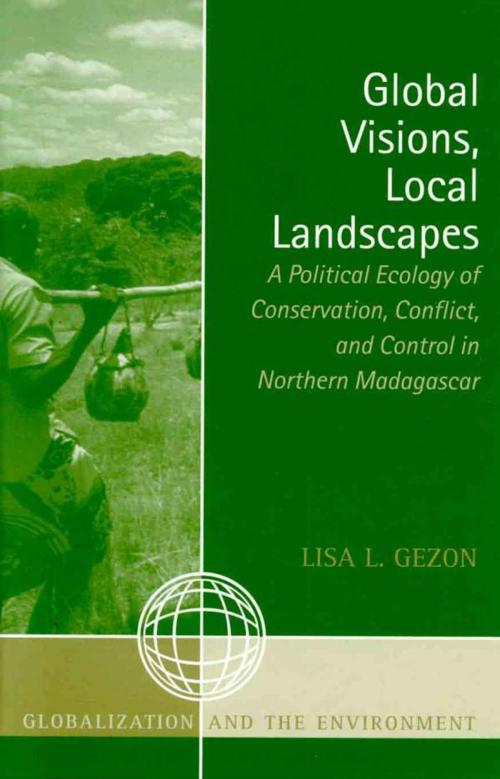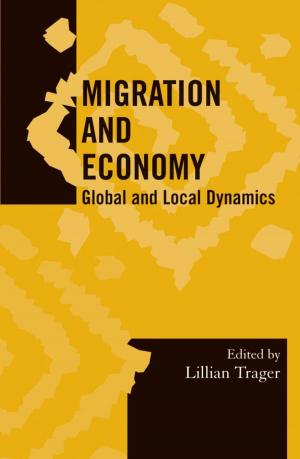Global Visions, Local Landscapes
A Political Ecology of Conservation, Conflict, and Control in Northern Madagascar
Nonfiction, Science & Nature, Nature, Environment, Environmental Conservation & Protection| Author: | Lisa L. Gezon | ISBN: | 9780759114104 |
| Publisher: | AltaMira Press | Publication: | September 15, 2006 |
| Imprint: | AltaMira Press | Language: | English |
| Author: | Lisa L. Gezon |
| ISBN: | 9780759114104 |
| Publisher: | AltaMira Press |
| Publication: | September 15, 2006 |
| Imprint: | AltaMira Press |
| Language: | English |
In her new book, Gezon argues that local events continuously redefine and challenge global processes of land use and land degradation. She challenges analytical distinctions between separate 'local' and 'global' spaces, rather proposing that the global is one aspect of the local, to the extent that people in any given locale must act within the parameters of policies, authorities, and material conditions that have sources outside of the reach of immediate local networks. Her ethnographic study of Antankarana-identifying rice farmers and cattle herders in northern Madagascar weaves together an analysis of remotely sensed images of land cover over time with ethnographies of situated negotiations between human actors. She focuses in particular on the interplay of political authorities-including family-based elders, a regional indigenous authority, and an NGO charged with enforcement of conservation policies-in the context of specific contests over resource access. Gezon takes a micro-political approach in evaluating conflicts that result in a change in control over local resources by global or supra-national policies, capital, or personnel. Her book will be particularly valuable to researchers and students in anthropology, geography, sociology, and environmental studies, and those involved in conservation and resource management.
In her new book, Gezon argues that local events continuously redefine and challenge global processes of land use and land degradation. She challenges analytical distinctions between separate 'local' and 'global' spaces, rather proposing that the global is one aspect of the local, to the extent that people in any given locale must act within the parameters of policies, authorities, and material conditions that have sources outside of the reach of immediate local networks. Her ethnographic study of Antankarana-identifying rice farmers and cattle herders in northern Madagascar weaves together an analysis of remotely sensed images of land cover over time with ethnographies of situated negotiations between human actors. She focuses in particular on the interplay of political authorities-including family-based elders, a regional indigenous authority, and an NGO charged with enforcement of conservation policies-in the context of specific contests over resource access. Gezon takes a micro-political approach in evaluating conflicts that result in a change in control over local resources by global or supra-national policies, capital, or personnel. Her book will be particularly valuable to researchers and students in anthropology, geography, sociology, and environmental studies, and those involved in conservation and resource management.















